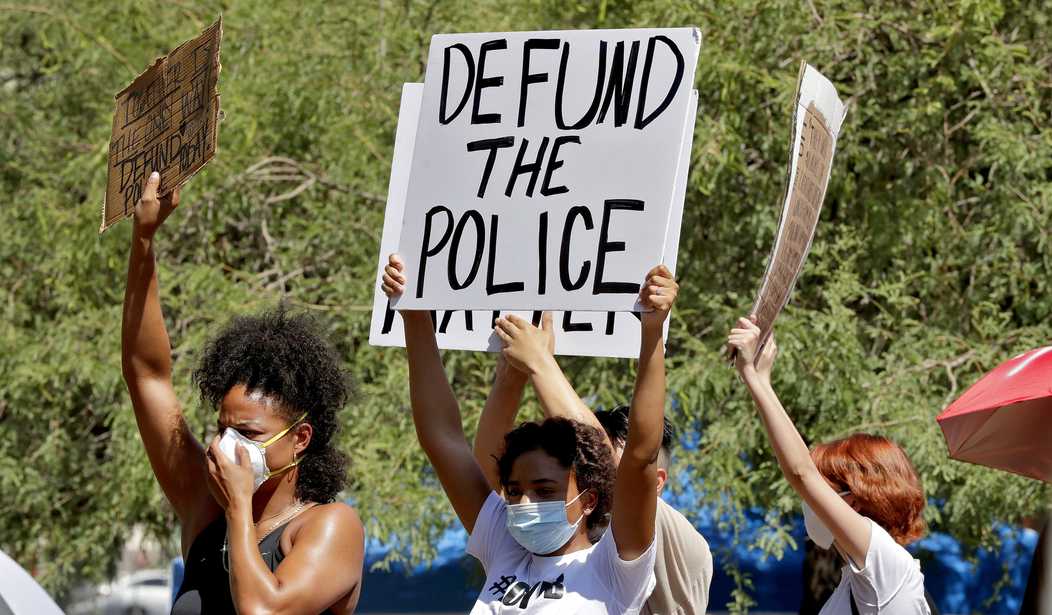An independent quest for verification of incidents and timelines detailed in a recent article published by The Atlantic resulted in an almost total lack of factual corroboration and many more questions than answers.
Earlier this month, The Atlantic shared a column by freelance writer, lawyer, and activist Derecka Purnell titled, "How I Became a Police Abolitionist," detailing a childhood experience that led the author to adopt her anti-law enforcement beliefs.
The tale is a harrowing one, painting a vivid picture of a day in the life of a preteen girl in an underprivileged part of St. Louis many years ago. One day, she wrote, while teaching her sister to play basketball at a neighborhood recreation center, she witnessed a horrifying incident in which a police officer shot a child at the rec center.
"When people dismiss abolitionists for not caring about victims or safety, they tend to forget that we are those victims, those survivors of violence," she wrote before detailing her eye-witness account on that fateful day.
"He was angry that his cousin skipped a sign-in sheet at my neighborhood recreation center," Purnell said of the offending officer. "I was teaching my sister how to shoot free throws when the officer stormed in alongside the court, drew his weapon, and shot the boy in the arm. My sister and I hid in the locker room for hours afterward. The officer was back at work the following week."
Purnell went on to detail how that day was like many others, underreported, not particularly headline worthy. She then sharply veered into the recent police killing of George Floyd in Minneapolis, and expressed how the nation needed total abolition of police to achieve equality.
Recommended
The article was widely shared, trending for days as one of the most-read pieces on magazine's website. The problem is that her story, a chilling anecdote about a violent, undisciplined police officer, does not seem to have actually taken place.
Chris Bedford of The Federalist embarked on a detailed investigative endeavor to corroborate any part of Ms. Purnell's story. She provided ample details in her article, down to the businesses, factories, highways, and smells that made her neighborhood memorable in her youth. That investigation led Bedford to contact the office of the mayor, search police union records, and scour city archives for any mention of the incident. Despite his efforts, however, he was unable to verify even one detail of the story, apart from the existence of the probable neighborhood Purnell described.
Giving leeway to likely misremembered details after the passing of several years, Bedford narrowed down the timeframe of Purnell's story to between 2001-2003, having occurred at one of two possible rec centers in that part of St. Louis. With that information, he went on to make inquiries, search digital news archives, and launch a Sunlight Law records request for incidents at either of the possible rec centers.
The research showed that apart from one suicide attempt in that time frame, no shooting incidents were mentioned in the records. A representative of the mayor's office who also worked as reporter in the early 2000s said he had no recollection at all of such an incident.
"I’m a little bit at a loss for words here because the shooting of a young boy by a cop in a St. Louis rec center, even if it had happened 20 years ago, I feel like that would be in my mind somewhere,” Jacob Long told The Federalist. “That does not sound remotely familiar, and I’m from here … I was here in 2001, 2002, 2003."
Bedford also made multiple requests for clarification and comment to Purnell and to Yoni Applebaum, the editor of the "Ideas" section of The Atlantic, where the article had been published. Purnell responded on Friday, nearly 24 hours after the request for clarification.
"Hi Chris – the Atlantic found it. Take care," she said simply. Applebaum was asked a series of questions on Thursday and again on Friday after Purnell's brief reply. Those inquiries included whether any of the story had been verified, whether there were any other witnesses able to verify the incident, who was in charge of content verification, and so on. As of publication of this report, neither Applebaum nor any other representative of The Atlantic has replied to The Federalist.
This is a developing story and will be updated as more details become available.
























Join the conversation as a VIP Member